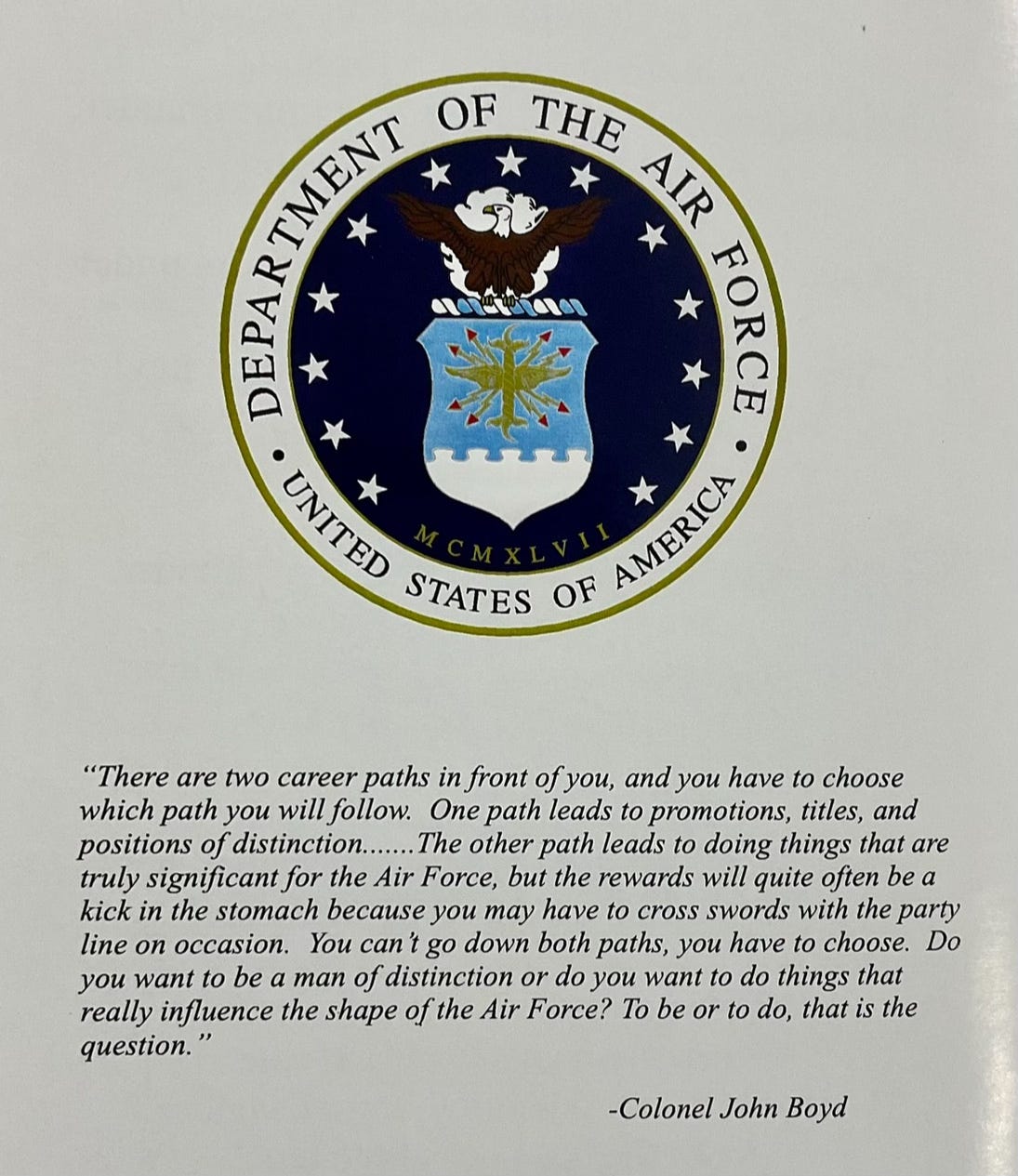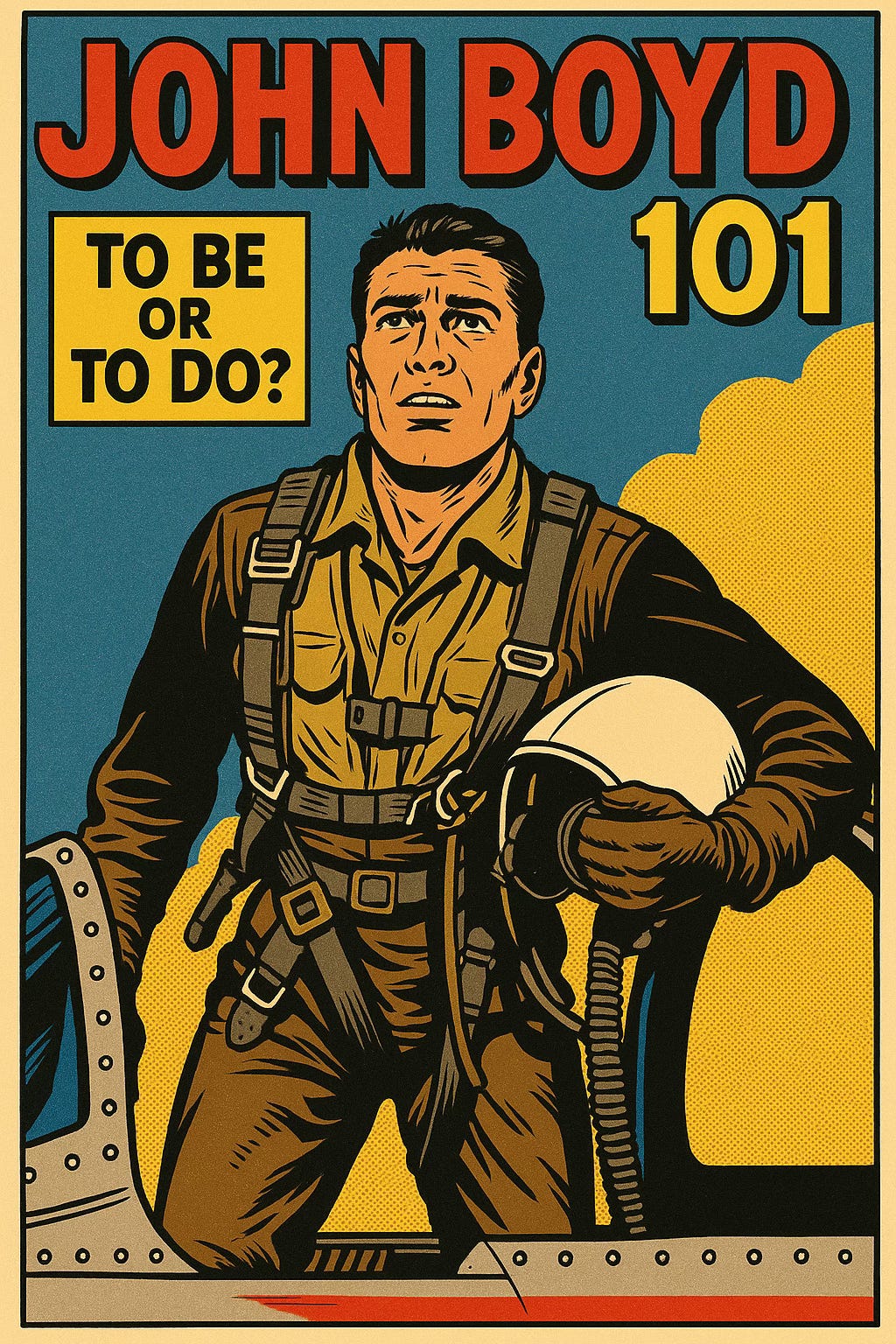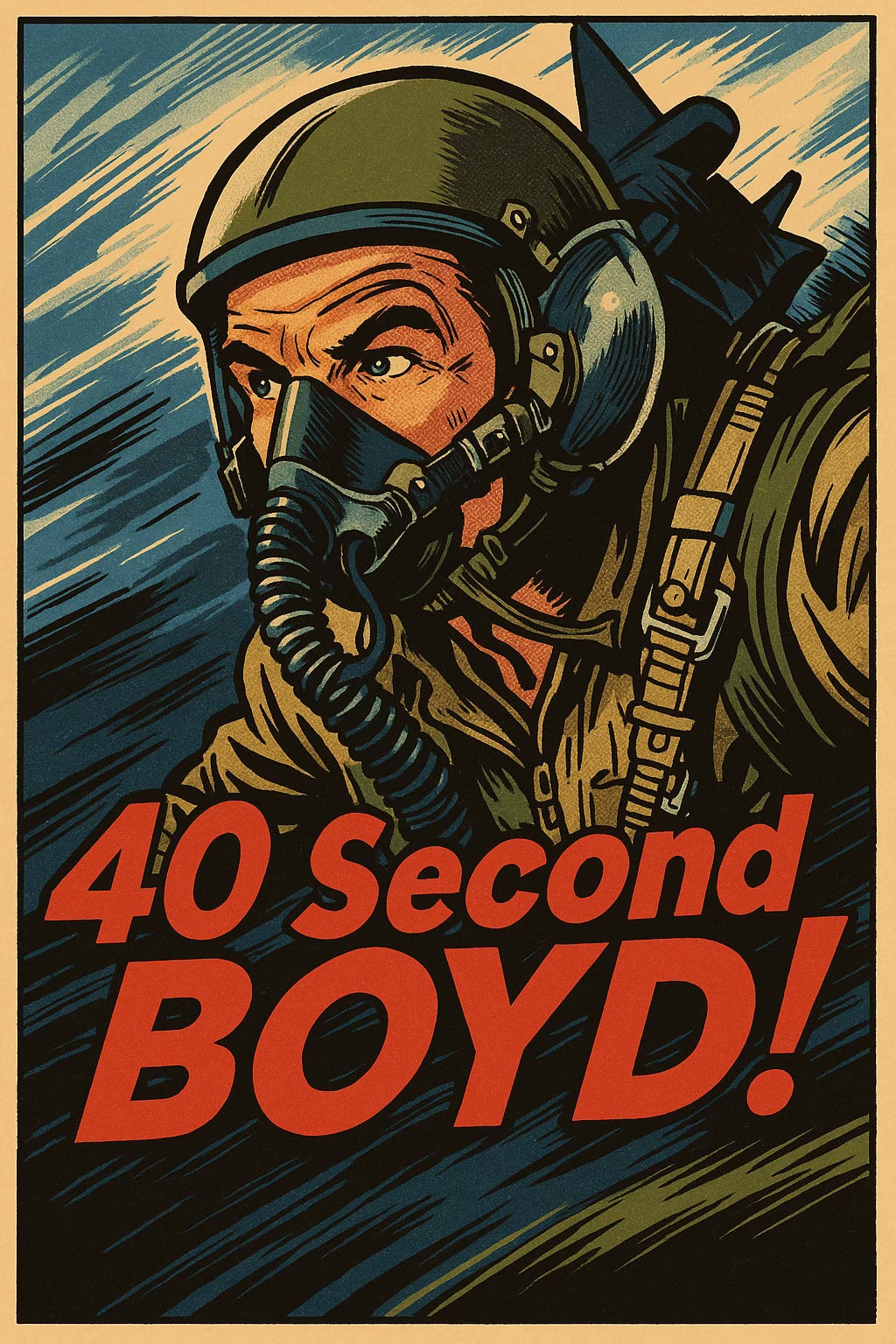John Boyd 101: The Only Two Articles You Need to Begin the OODA Journey
If you want to think faster, decide better, and operate in chaos, then start with these.
The Tao and the Fork In the Road
I teach John Boyd's work as a profession.
I work with leaders in capital markets, public relations, narrative warfare, executive decision-making, litigation, advertising, sports coaching, energy, you name it. I work with people operating in high-friction environments who need a living system of thinking and acting. What they need is to understand Boyd effectively.
And inevitably, whether I'm advising an oil executive, a fund manager, or a military officer, I get asked the same question:
"Where do I start?"
I could hand them briefing slides, point them to Destruction and Creation, and send them to Osinga, Coram, Richards, or our own frameworks developed over decades of immersion. But I don't, at least not right away.
Instead, I send them two articles on The Art of Manliness written by
and :For more than ten years now, these two pieces are where I recommend most people begin their journey into Boyd. Not all people, but most. I've been studying Boyd since the late 1990s when I was an officer in the Marine Corps. I've read everything I could find by Boyd, about Boyd, critiquing Boyd, revering Boyd, misinterpreting Boyd. These two articles? They are as good an introduction to Boyd's worldview as I've ever seen.
They are accessible but not dumbed down. They are strategic, not academic. They are teachable, shareable, printable, and if you're serious about learning Boyd, they are worth reading more than once.
A Tao for Thinkers and Doers
The Tao of Boyd introduces what most people think they understand, the OODA "loop," but reveals what it is. It is not a cycle, not a gimmick, but a generative learning system for navigating reality. It is a way of seeing the world, a method ofinteracting with it, a moral-epistemological engine built to evolve your thinking faster than the conditions around you degrade it.
The McKays get it right. They bring in Gödel, Heisenberg, and thermodynamics, not as trivia but as foundational architecture. They understand Boyd's refusal to write a book wasn't laziness; it was fidelity to the process. And they guide the reader toward what Boyd was always aiming at: a fast, flexible, recursive cognitive operating system that doesn't just survive complexity, it thrives inside it.
The Fork in the Road That Still Cuts Deep
Then there's John Boyd’s Roll Call. I've quoted it. I've taught it. I've aspired to live it, and model it to others. If Tao of Boyd is the schematic, this is the soul. It captures the ethical line that runs through all of John Boyd's work and the lives of those who seek to apply it with integrity.
Boyd warned his Acolytes:
"You will reach a fork. You can choose to be somebody. Or you can choose to do something."

This is not a metaphor. This is a creed, and it holds up. Anyone serious about applying Boyd to today's corrupted corporate, cultural, and governmental institutions will face the same test. Those who choose to "do" are threats to those who choose to "be." The Guardians Of Decay always reward the quiet, the compliant, and the careerist. Boyd made it clear which side he was on.
The McKays make that clear, too. Their writing is respectful but sharp, clear but challenging. It lays the groundwork for what I do every day: helping people not just admire Boyd's work but live it.
These Are Orientation Tools. Use Them.
If you're looking for a foundational understanding of who John Boyd was, what he taught, and why it matters now more than ever, these two articles are the on-ramp. If you're a professional under pressure, a leader in crisis, a thinker fighting for clarity, this is where you begin.
Start here. Read both. Reread them. Share them. Teach them.
Then keep going. Because the loop never ends. And neither does the war for orientation.
Whether you know it or not, you're in the system Boyd revealed. You're already subject to the pressures he mapped out. The sooner you understand that, the faster you adapt and the freer you'll become.
Because Boyd didn't give us a decision model.
He gave us a cognitive weapon.




Great recommendation. Love the Art of Manliness, their writings and podcast.
I love your columns, I read most, and if I don't it is due to time, as I am working on my new book, and just got tasked to write an article on my reform recommendations for a major on line publication.